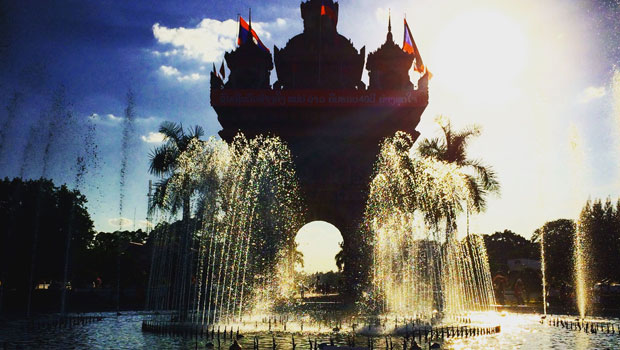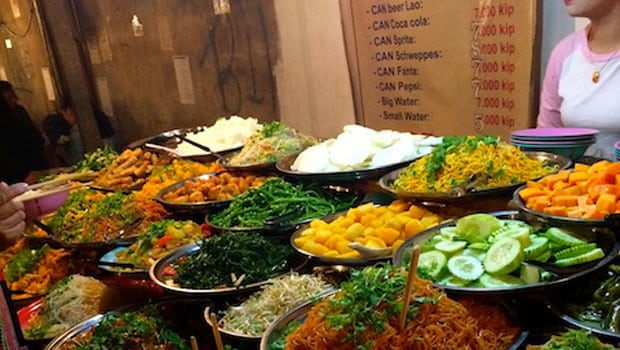I ran into the bus station looking like a maniac, drenched in sweat, hauling my forty-pound bag on my back and berating myself for foolishly relying on my internal clock. I saw the bus driver and approached sheepishly, expecting to be scolded for arriving late and holding up the rest of the passengers. Instead the man smiled, took my bag and asked me where I was from. “Americans, always in a hurry,” he responded as he ushered me into a small café that more closely resembled (and probably was) a family’s living room. I realized an hour later, when the bus finally departed, that arriving 15 minutes later than the scheduled time was quite early by Lao standards.

Patuxai Victory Monument in Vientiane, Laos.
After growing up in the hustling and bustling society of America, Laos has been, quite literally, a change of pace. The first word that comes to mind when describing Laos PDR (People’s Democratic Republic), colloquially known as Laos “Please Don’t Rush”, is mellow. The capital, Vientiane, is a sleepy city on the Mekong River where evidence of French colonialism is still present in the city’s perennial café culture. You can pop into a shop on any corner and order a café yen, a Lao-style iced coffee sweetened with condensed milk, and enjoy watching the citizens of Vientiane go leisurely about their day.
At first glance, Vientiane may appear to have nothing more to offer than a pretty sunset and an ice-cold glass of the local Beer Lao along the Mekong. But upon further investigation, you will find a rich culture focused largely on food and sports. Lao food itself is a cuisine similar in many ways to Thai food, with staples like sticky rice, papaya salad and laarp, the national dish of Lao made of ground meat or fish marinated in mint and chili and served with sticky rice and vegetables. The smell of barbecue is a constant presence along the streets of Vientiane and trucks filled with fresh fruits and vegetables are parked on almost every corner. In an effort to offset the pounds of sticky rice and noodles consumed each day, there are aerobic dance classes all along the river, in the parking lots of temples and local parks, complete with traditional Lao music.

Image courtesy of Colleen.
One of the first phrases I learned in Lao was “bor pen yang” or “no worries”. You hear it constantly: on the street, in restaurants, while bargaining with a tuk-tuk driver. Laos is a laid-back culture of no worries and one I hope to fully embrace over the next six months, leaving the American hustle and bustle behind for a little while.
by Colleen




